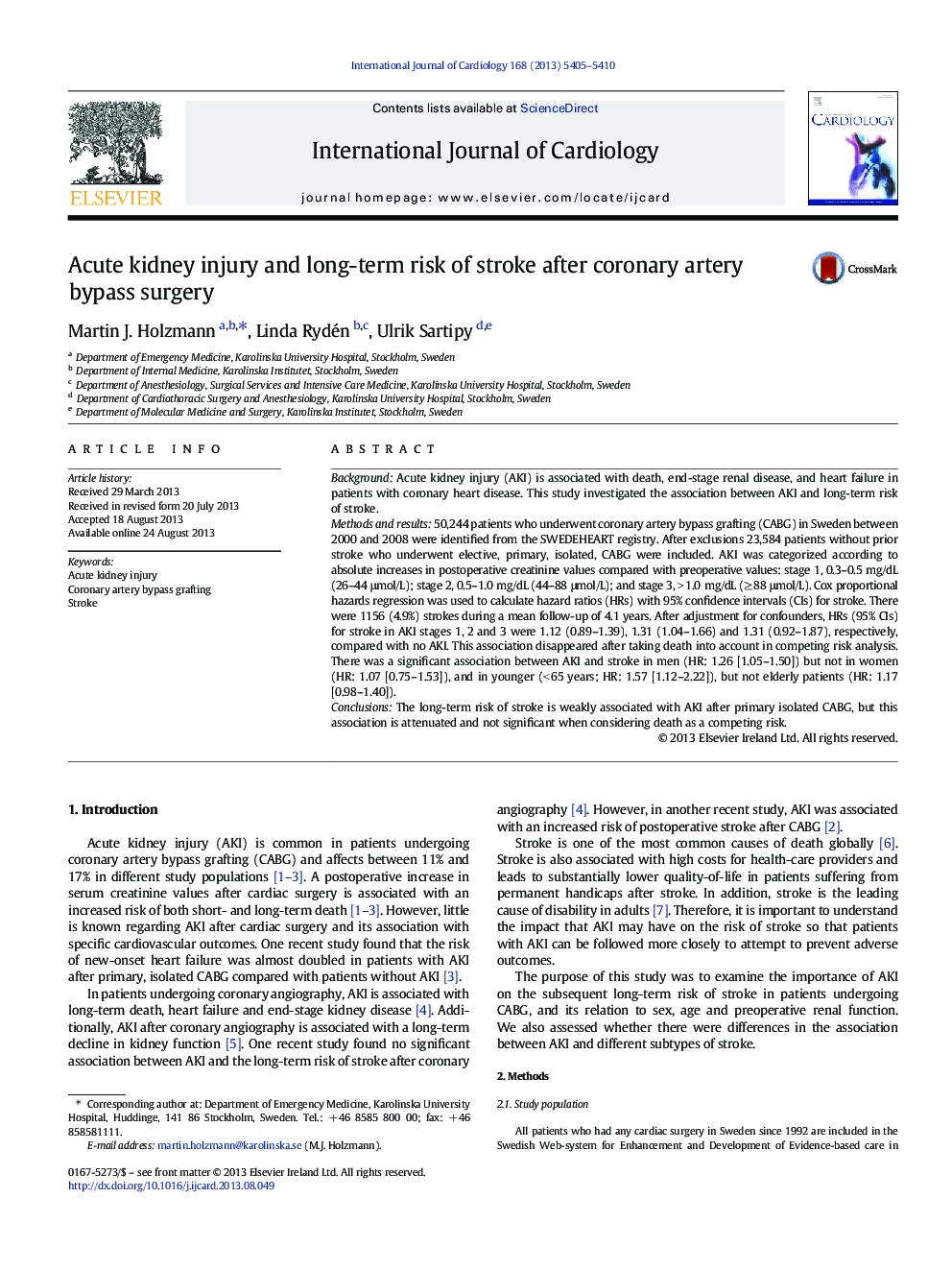| Article ID | Journal | Published Year | Pages | File Type |
|---|---|---|---|---|
| 5975139 | International Journal of Cardiology | 2013 | 6 Pages |
BackgroundAcute kidney injury (AKI) is associated with death, end-stage renal disease, and heart failure in patients with coronary heart disease. This study investigated the association between AKI and long-term risk of stroke.Methods and results50,244 patients who underwent coronary artery bypass grafting (CABG) in Sweden between 2000 and 2008 were identified from the SWEDEHEART registry. After exclusions 23,584 patients without prior stroke who underwent elective, primary, isolated, CABG were included. AKI was categorized according to absolute increases in postoperative creatinine values compared with preoperative values: stage 1, 0.3-0.5 mg/dL (26-44 μmol/L); stage 2, 0.5-1.0 mg/dL (44-88 μmol/L); and stage 3, > 1.0 mg/dL (â¥Â 88 μmol/L). Cox proportional hazards regression was used to calculate hazard ratios (HRs) with 95% confidence intervals (CIs) for stroke. There were 1156 (4.9%) strokes during a mean follow-up of 4.1 years. After adjustment for confounders, HRs (95% CIs) for stroke in AKI stages 1, 2 and 3 were 1.12 (0.89-1.39), 1.31 (1.04-1.66) and 1.31 (0.92-1.87), respectively, compared with no AKI. This association disappeared after taking death into account in competing risk analysis. There was a significant association between AKI and stroke in men (HR: 1.26 [1.05-1.50]) but not in women (HR: 1.07 [0.75-1.53]), and in younger (< 65 years; HR: 1.57 [1.12-2.22]), but not elderly patients (HR: 1.17 [0.98-1.40]).ConclusionsThe long-term risk of stroke is weakly associated with AKI after primary isolated CABG, but this association is attenuated and not significant when considering death as a competing risk.
